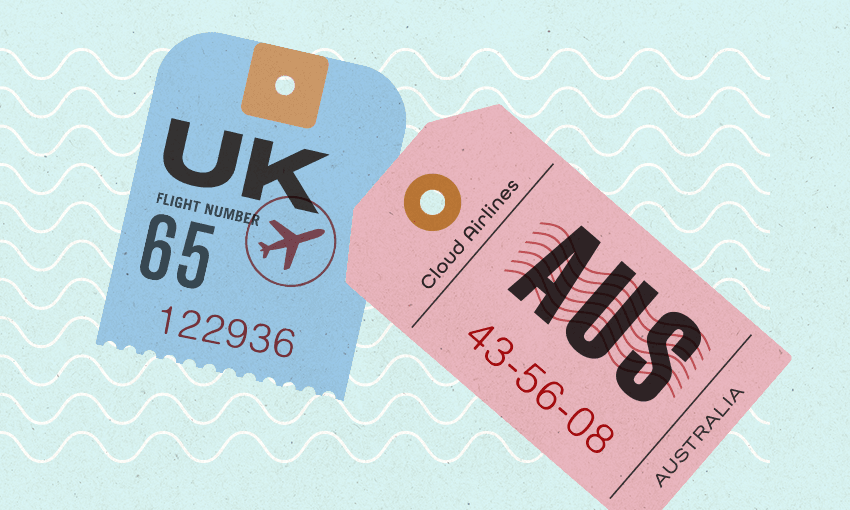As New Zealand celebrates a year’s increase in its UK OE duration, Henry Cooke reflects on what living in London has taught him.
This article was first published in Henry Cooke’s politics newsletter, Museum Street.
At this point about a year ago my partner and I started to seriously plan how to blow our lives up and move to the other side of the world. Several months later we did it, creatively picking London and using the youth mobility visa, which requires nothing more than a pulse and several thousand pounds. In recent days that visa became significantly better: Both Governments are fast-tracking changes that will make the visa last three years instead of two, and allow those already on the visa to enjoy this extension too.
This is a Very Big Deal for those of us already here and the trade negotiators who managed it as part of our FTA should be saluted. It’s also a great excuse for me to indulge in a post where I generalise my experiences out to the tens of thousands of New Zealanders who call the UK home – let alone the million or so Kiwis abroad. Let’s go!
Does the UK deserve its place in our cultural imagination?
When people think “OEs” they think of the United Kingdom. This makes some sense. In a sector of New Zealand society, it really is a culturally-encouraged rite of passage. Chris Hipkins, Christopher Luxon, Jacinda Ardern and Simon Bridges all did some variety of UK OE, although with differing characteristics. Both of my parents, two of my siblings, and an innumerable number of my friends have done it too. But let’s be honest – that list entirely consists of university graduates who were either already solidly middle class or upwardly mobile. It’s not that only reasonably affluent people or those in knowledge sector jobs move here, but the cohort definitely skews that way – especially since you need to spend quite a bit on startup costs.
Which is why we should change our perceptions of the OE to focus on somewhere much closer to home. Recent-ish stats suggest about 48,000 New Zealand citizens live in the UK, compared to 530,000 New Zealanders who live in Australia. Obviously a lot of the people in those groups are not on “OEs” any more – they have settled there or moved as children. But a big chunk of them are there on a visit that is somewhat finite, working and having fun, but planning to return to Aotearoa eventually.
Australia doesn’t really fit our idea of the OE, because it is much closer and more similar. You go over just one sea to get there, not several. When there isn’t a pandemic on you can pop back home for Christmas without a second thought. But really it is a far more common “overseas experience” than any other one a typical New Zealander enjoys. And unlike moving to Europe or North America it is genuinely open to people of almost all economic backgrounds – you literally just need a few hundred bucks for the airfare and somewhere to crash when you land. Whatever kind of work you do there, you’ll probably make more than you would in New Zealand.
But don’t people earn lots more in the UK too?
Some people definitely do. The lawyers, accountants, and consultants who come here seem to all do very well. But when we zoom out, median hourly earnings in 2022 were actually a touch higher in New Zealand than the UK – NZ$29.66 compared to £14.77 (NZ$28.22). Median Australian hourly earnings were about NZ$39; there’s a reason they call it the lucky country.
When you talk to people who moved here recently, a lot of people have taken a bit of a pay cut. To be fair, it’s quite hard to tease out what’s due to differing payscales here and what’s due to just trying to switch your career to a new country, where few people know you or respect your experience in the same way they might in New Zealand.
Focusing exclusively on pay misses quite a bit though. The UK’s income tax system is somewhat more progressive on both extremes than New Zealand’s. The bottom income tax rate is 0% in the UK and 10.5% in New Zealand, while the top tax rate is 45% in the UK and 39% in New Zealand. But on the actual bands that most people pay, income earners in the UK get taxed slightly higher – a person earning the median hourly wage on full-time hours in the UK would pay marginally more tax (including National Insurance) than someone in New Zealand. The UK’s wider tax system is also far more complex with far more types of taxes and types of carveout. VAT, their version of GST, is 20% in some instances and 0% in some instances, while ours is just 15% across the board.
More crucially for those thinking of moving here, a lot of things are more expensive. Median monthly rent in the largest city in New Zealand is about NZ$2300 a property, in the UK it’s more like NZ$3560. These stats are blunt and miss the impacts of household composition, but it is broadly true that London rent is far more expensive than Auckland rent. Energy bills again are far more expensive (a kWh of electricity is about twice as pricy in the UK currently, but there is a complex web of subsidies to factor in too), and eating out is dramatically more expensive. I say this as someone who visited New Zealand for two weeks last month – it is still a whole lot cheaper to go out and have fun in Wellington or Auckland than it is in London. It’s also a lot more expensive to get delivery food – a guy on TikTok recently flew to Italy from London for a pizza for less money than it would cost to get a Dominoes pizza delivered.
But not everything is more expensive. Supermarkets are far cheaper in the UK, particularly for fresh fruit and veg. This will be due to two main factors. Firstly, VAT is not charged on a lot of food here. Secondly, the competition between supermarkets is fierce. I can walk to four different supermarket brands in about five minutes, and another two or three if I went further afield. Phone plans, furniture, clothes and books are also dramatically less expensive in most instances. Big market, lots of competition.
All of this is to say that if you live your life on purely economic terms, moving to London is probably not a great choice for you unless you are a fancy pants lawyer who will make trillions of dollars. If it’s all about the money for you, stay home with your professional networks or move to Australia and make megabucks. But of course it’s not all about the money.
Why I do think the UK is great
If we all lived our lives maximising our economic utility we would never do anything fun – and moving to the UK is a lot of fun. From what I can tell – the statistics are very out of date – the UK does remain the number two destination for Kiwis abroad, which makes a lot of sense. After all:
- Everyone speaks English (unlike Germany or Japan).
- You can get a visa without a job offer (unlike the US).
- You can go to Europe on the weekends (unlike Australia).
- There are thousands of things to do every single night of the week, if you want (unlike New Zealand).
I’ve had a fantastic time here. I had lived in Wellington consistently for 29 years straight, save a two-month stint in Shanghai. It’s a beautiful city I want to grow old in, but getting out before I was really locked into the place was crucial, if only so I can knowingly say “well when we lived in London” for the rest of my life.
I’m far from the first to say this, but the perspective living abroad gives you on your home country is clarifying. Living in a city with a proper mass transit system and cycling infrastructure opens your eyes to how narrow our horizons are on this stuff. Seeing close up the way another bicameral Westminster system works through laws makes you marvel at our system’s efficiency. Working and living with real-life British people gives you a window into their culture and way of life that no Oasis song can.
It also makes you realise what really is “Kiwi” about your cultural outlook and what is inherited. Some of the stuff we describe as uniquely New Zealand is in fact just typical of all the other British colonial outposts. Australians also like to be casual in social settings and value being able to fix things themselves, as James Belich has explored quite a bit. Brits also focus their dominant monoculture around alcohol and football. Yet there are still things I feel I can only explain to another Kiwi, and a series of differences in the way we see the world that would take another whole post to dig into, which I feel are more than just the bonds of having read the same news for the last few decades. And whenever you’re sick of the UK, the continent is about three hours and 30 bucks away.
This article was first published in Henry Cooke’s politics newsletter, Museum Street.

